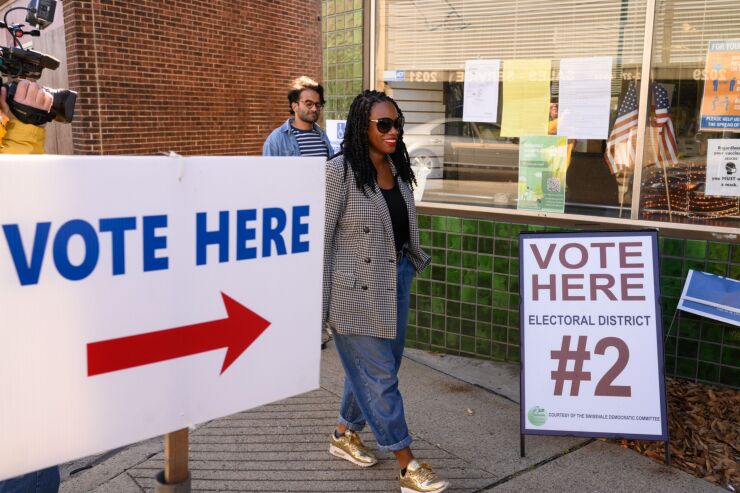Elections have consequences, and last week's midterm elections will produce their share as we roll into another legislative session. The House will be in Republican hands when the new Congress is sworn in, while the Senate will be under Democratic control regardless of the outcome in the Georgia runoff. As a result, any new tax legislation will necessarily be the product of negotiation and compromise.
With a Republican-controlled House, the Biden agenda is dead, according to Phil English, former U.S. congressman and ranking member of the Ways and Means Committee, and senior government relations advisor and co-chair of the government relations practice at ArentFox Schiff. "The president will continue to push for his priorities but his ability to push major legislation through will not be there," he said. "So there's the opportunity for the administration to either collaborate with Congress on a bipartisan basis, or have the reduced ability to use the budget process and reconciliation as a backdoor to passing major legislation on a partisan basis."
The administration made broad use of the Tax Code to advance a green agenda, and specifically a climate change agenda, English observed. "But what they laid out are broad incentives that are expensive and move the needle in a very limited way," he said, noting that his firm had advocated in favor of a number of the provisions.
"If anything, these were an extension of existing tax policy provisions," he said. "The administration has played out its agenda on change to achieve broad incentives that will have comparatively modest returns. Now, I think they have lost the initiative on climate change, because with the court decisions that have come down their ability to utilize existing environmental statutes from a bygone era and repurpose them has been dramatically reduced. If they want to go forward on climate change, they will need to pass a serious environmental bill which sets policy, and to do that they will have to collaborate with Republicans."
English foresees both parties working together to agree on legislative priorities: "I think the election results will invite a recalibration of the tax agenda, where the Ways and Means and the Finance Committees will try to collaborate on a bipartisan, bicameral basis. If the leadership of the respective bodies allow them to do this, it could impact a variety of areas in the code. The bigger picture is that much of the Tax Cuts and Jobs Act is now unwinding — the individual tax cuts are being phased out and the corporate incentives, which would be very valuable in the soft economy we're facing, will be rolled back."
On a more ambitious front, there will be an effort to make permanent certain features of the TCJA, such as locking in full expensing on the corporate side, and cuts on the individual side, without intentionally rolling back Republican priorities on keeping rates low on both sides, English indicated: "This will be complicated in that budgets will be proposed to reduce deficits, and there is no consensus between parties on the level of deficits that would be appropriate. This is where Republicans will resist tax increases, and Democrats will resist spending decreases."
"Both sides will agree to spend more on national security and defense. Democrats will prioritize passing an updated Child Tax Credit, while Republicans will want to extend parts of the TCJA and hold rates down. The common ground on this will be challenging to find," he said. "The leadership to come up with compromises possibly exists in the committees, but it remains to be seen if they will have the flexibility to develop common ground to pass legislative proposals in the entire House and Senate."
Tax policy will increasingly move in the direction of collaboration on major issues, or on "small ball" tax policy, he suggested. "In this environment, carbon tax will be driven by a demand for climate change legislation beyond what's been passed. A carbon tax is one of the elements that could move the needle," he said. "Arguably, the public could look at a carbon tax as a shift and a solution to the carbonizing of the economy. It's hard to see a compromise evolve quickly."

"The move into a presidential election cycle will provide Republicans with the opportunity to have a 'reckoning,' and they are prepared for that," said English. "That will require the party to position itself in a way that is offering positive conservative solutions, rather than sterile turnout tactics of the Trump era. The Democrats are not going to have the reckoning that they should have. They won't have a course correction, but that strengthens Biden's hand for reelection."
English believes that Biden's policy legacy of the last presidential campaign will remain in place. "There's the chance that he will pivot and begin to address the deficit," he said. "Biden has always displayed some capacity to build a bipartisan coalition, and he's a master of the legislative process. Whether he does that, or uses Republicans as a punching bag, is a strategic decision. Overall, the elections strengthen his hand, but presidential politics will make progress difficult."





